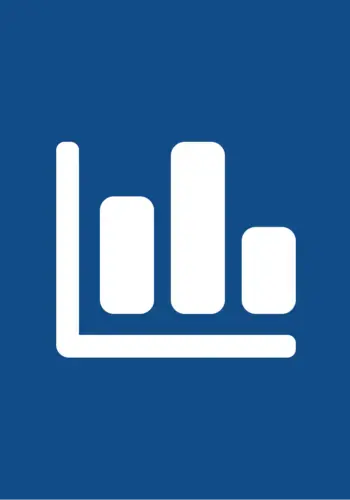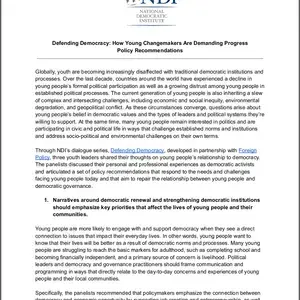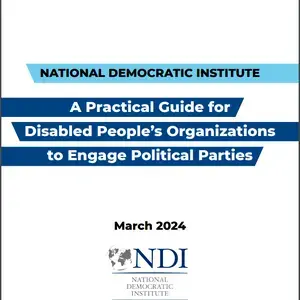Iraqis grew increasingly frustrated with poor service provision and rampant corruption, according to the findings of an NDI national survey conducted from August 12 to September 3, 2015. Citizens’ concerns about the government’s perceived lack of responsiveness to the people’s needs (58 percent saw the issue as worsening) negatively impacted public attitudes about politicians and political entities. One in six respondents (60 percent) considered local governments as important for bringing about progress in their communities, but only 38 percent judged local governments to be effective. Despite some growing differences in perception, the poll found that Shia and Sunnis shared common ground and agreed on a number of broad measures that could bring about reconciliation.
Developed in partnership with Greenberg Quinlan Rosner, the poll gauged public sentiments on a range of issues. In total, 2,000 face-to-face interviews were conducted, representing a broad cross-section of Iraqis from geographically and ethnically diverse provinces. The poll’s margin of error is +/- 2 percent. NDI has conducted 10 national surveys in Iraq since 2010, as well as a number of focus groups. It last conducted a nationwide survey in Iraq in December 2014.
The poll found that more Iraqis (65 percent) perceived the country as headed in the wrong direction than in any period since 2010. At a time of extreme heat and public protests in August, concerns over basic services and corruption had increased significantly. A larger number of Iraqis wanted the government to prioritize basic services (37 percent) and corruption (43 percent) compared to the findings in December. Corruption as a priority concern reached its highest level since 2010 as 78 percent of respondents judged it to be worsening. Given the ongoing battle against ISIS, security remained a pressing issue for many Iraqis, with 48 percent selecting it as one of their top two concerns.
Despite the worsening mood, almost two out of three Iraqis (65 percent) approved of the job Prime Minister Haider al-Abadi was doing. Among political leaders tested, Abadi was the only national figure toward whom a majority felt favorable. A majority (53 percent) of Sunnis still approve of the job he is doing—although Sunni approval fell 16 percent since December. Despite their support for him, 61 percent of Sunnis perceived sectarianism as getting worse and 15 percent fewer Sunnis perceived the Abadi government to be more inclusive than Maliki’s government.
Both Sunnis and Shia agreed on steps that could improve the situation, however. A plurality believed the General Amnesty Law to be more important than either the Federal Court Law or National Guard Act to advance political accommodation. A majority of both Shia and Sunnis agreed that ensuring a fair judicial process would be a “very effective” way to achieve political accommodation in Iraq. A modest 49 percent judged decentralization as somewhat or very important, and most Iraqis (45 percent) expressed concern that decentralization could lead to more corruption.
For the first time, a plurality of Kurds (49 percent, up 29 points since December) felt Kurdistan was headed in the wrong direction. This pessimism—driven by concerns about corruption and the provision of basic services—was also detected in the hardening of negative attitudes toward Baghdad (95 percent of Kurds perceived relations between Kurdistan and Baghdad to be worsening) and fears that tensions among Kurdish political parties could lead to internal conflict (94 percent). Significant partisan divisions on a number of issues laid bare a growing polarization within Kurdistan. Although 94 percent of respondents aligned with Barzani’s Kurdistan Democratic Party approved of the proposed extension of Kurdistan President Massoud Barzani’s term, a majority of Kurds (51 percent) disagreed with it.
As Iraqis continued to battle ISIS for control of parts of the country, only Shia respondents were optimistic. Fifty-three (53) percent think ISIS will be defeated in the next year, compared to 19 percent of Sunnis and 10 percent of Kurds. As the average Iraqi continues to look to elected representatives and institutions to forge long-term solutions to an array of problems, the need for responsive policy-making remains a pressing need. Hopefully, the hard data from the NDI poll will be able to contribute to that need.




